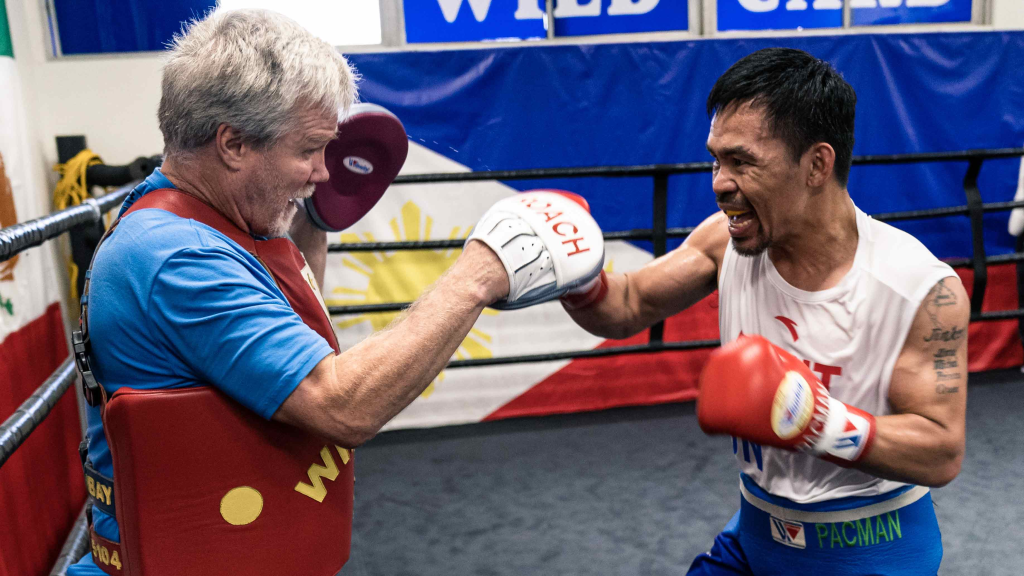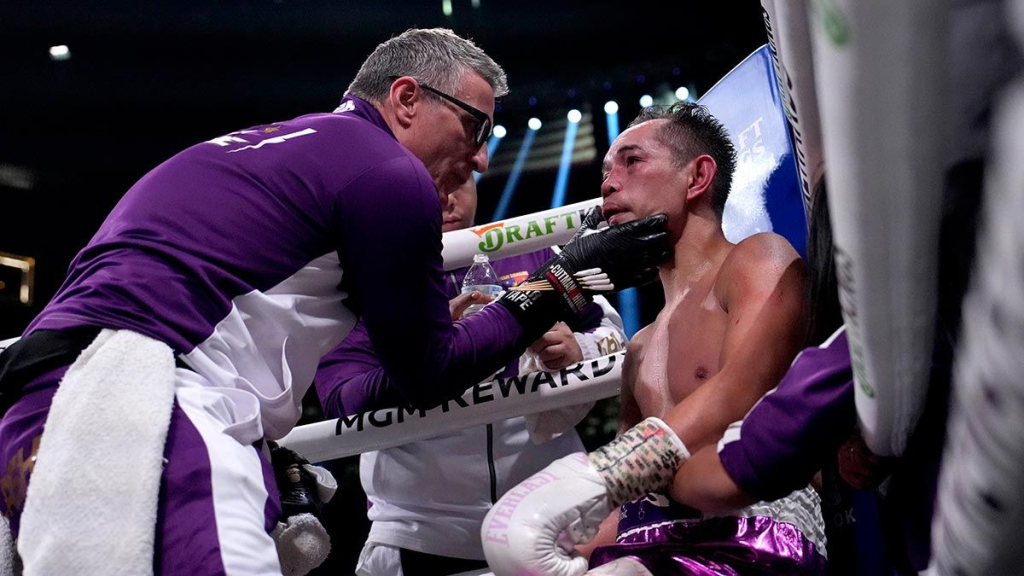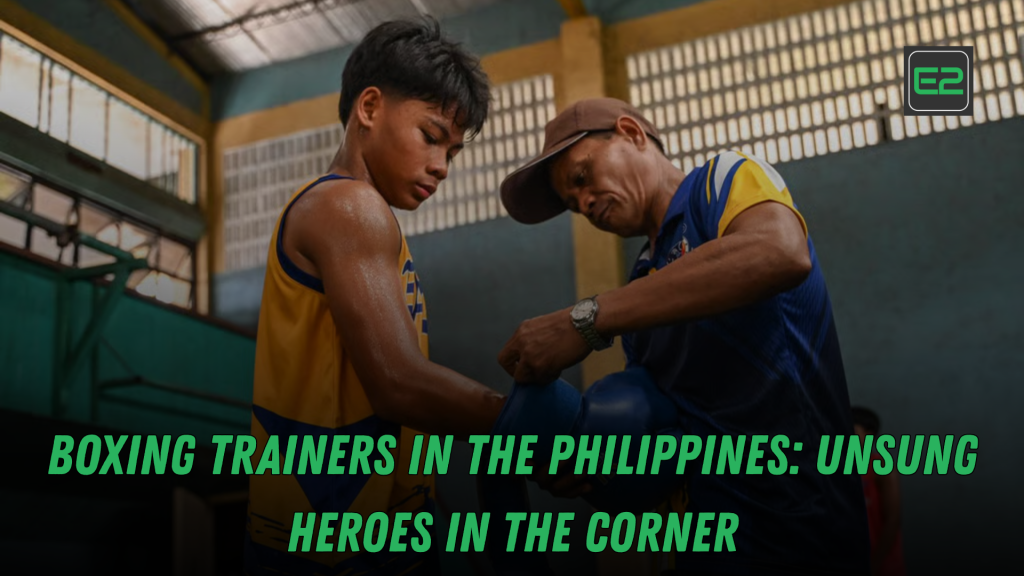One of the most important yet often overlooked elements of success in the sport is the boxing trainers. Boxing has long been a beloved sport in the Philippines, producing some of the most successful and celebrated athletes, including the legendary Manny Pacquiao. These unsung heroes work tirelessly behind the scenes, shaping and guiding athletes to achieve greatness in the ring. In this article, we will dive deep into the essential role of boxing trainers in the Philippines, their contributions to the sport, and the challenges they face in nurturing the next generation of boxing champions.
Table of Contents
1. The Role of Boxing Trainers in the Philippines
1.1. Trainers as Mentors and Strategists
A boxing trainer is not just someone who holds the pads or shouts instructions from the corner during a match. Trainers are mentors, strategists, and emotional supporters who guide boxers through their toughest moments, both in training and competition.
- Mentorship and Guidance: Boxing trainers provide more than just technical training; they also offer guidance in mental toughness, discipline, and building the right attitude. They help boxers develop the mental strength needed to overcome adversity both in and out of the ring.
- Strategic Planning: Trainers are crucial in developing the fight strategy. They analyze opponents’ weaknesses, prepare boxers for specific tactics, and adjust strategies during the fight. A trainer’s ability to read the opponent and make necessary adjustments can often determine the outcome of the match.

1.2. Technical Training and Skill Development
At the heart of a boxing trainer’s role is teaching the fundamentals of the sport. This includes the mechanics of throwing punches, footwork, defense, and conditioning.
- Fundamentals of Boxing: Trainers focus on developing the boxer’s core skills—proper stance, effective punching techniques, defensive maneuvers, and movement. Mastery of these techniques is essential for success.
- Conditioning and Endurance: A large part of training involves improving stamina, strength, and conditioning. Boxing is one of the most physically demanding sports, and trainers work with athletes to ensure they are in peak physical condition.
2. The Challenges Faced by Boxing Trainers
2.1. Financial and Logistical Constraints
While boxing is a widely popular sport in the Philippines, many trainers and aspiring boxers face financial constraints. With limited resources, trainers often work in less-than-ideal conditions, and boxers sometimes struggle to afford proper equipment or training facilities.
- Limited Funding: Many trainers work with boxers from humble backgrounds, where funding for advanced training programs and equipment is scarce. Despite this, they continue to train with passion and dedication.
- Underdeveloped Infrastructure: Many gyms and training facilities in the Philippines, especially in rural areas, lack the high-tech equipment found in world-class gyms abroad. Trainers often make do with what is available, relying on their expertise to maximize results.
2.2. Emotional and Psychological Pressure
Training a boxer isn’t just about pushing them physically; it’s also about helping them manage the intense psychological pressure that comes with the sport. Boxing is a high-stakes game, and the emotional toll on athletes can be significant.
- Mental Health of Athletes: Trainers play a critical role in helping boxers handle the stress and anxiety of competition. They often provide emotional support, help athletes stay focused, and ensure they maintain a healthy mindset throughout their career.
- High Expectations and Pressure: The pressure to win can be overwhelming for boxers, especially in a country like the Philippines, where boxing champions are national heroes. Trainers have the difficult task of keeping their boxers grounded while also helping them handle the weight of such expectations.

3. The Unsung Heroes Behind the Champions
3.1. The Importance of Loyalty and Trust
In boxing, success is not only about skill but also about trust between the boxer and the trainer. The relationship between them is built on loyalty, mutual respect, and understanding. Great trainers know their athletes inside and out—what motivates them, what scares them, and how they can push them to be their best.
- Long-Term Commitment: Many trainers in the Philippines stick with a boxer through their entire career. They see their athletes grow, face challenges, and rise to greatness, forming a bond that goes beyond the sport.
- Personal Investment: Trainers often invest their time and energy into developing their athletes, sometimes sacrificing their own personal time and well-being. Their work is driven by a deep passion for the sport and a genuine desire to see their fighters succeed.
3.2. Famous Boxing Trainers in the Philippines
The Philippines is home to many legendary boxing trainers who have helped shape the careers of some of the country’s most famous fighters. Freddie Roach, Nonoy Neri, and Rafael Garcia are just a few of the names that come to mind when discussing the impact of trainers on Filipino boxing.
- Freddie Roach: Perhaps the most famous Filipino boxing trainer, Roach is best known for training Manny Pacquiao, turning him into a global boxing icon. Roach’s techniques and guidance helped Pacquiao rise to the top of the boxing world.
- Nonoy Neri: A well-respected coach in the Philippine boxing community, Neri has trained several fighters who have gone on to win national titles.
- Rafael Garcia: Known for his expertise in developing fighters’ defensive techniques, Garcia helped train fighters like Nonito Donaire to become world champions.
4. The Future of Boxing Training in the Philippines
4.1. Growing Support for Boxing Programs
As the popularity of boxing continues to grow in the Philippines, more universities and organizations are providing training programs for aspiring boxers. This increase in support for boxing at the grassroots level will help develop future generations of athletes and trainers.
- Educational Institutions Supporting Boxing: Universities and schools are beginning to incorporate boxing into their sports programs, helping athletes develop their skills from a young age.
- Increased Investment in Infrastructure: With the success of Filipino boxers on the international stage, there is likely to be more investment in better training facilities, which will make the job of trainers easier and more effective.
4.2. The Role of Technology in Boxing Training
With the advent of technology, trainers in the Philippines are beginning to adopt new methods to enhance their training techniques. Video analysis, fitness trackers, and online coaching resources are becoming more common in boxing gyms, helping trainers evaluate fighters’ performances and improve their skills.
- Video Analysis: Trainers can now analyze fights and training sessions in real time, providing valuable insights that help athletes refine their techniques.
- Fitness Technology: Wearables and other fitness trackers are giving trainers real-time data on their boxers’ physical performance, allowing for personalized training plans and quicker adjustments.

Conclusion
Boxing trainers in the Philippines are the unsung heroes who play an essential role in the success of Filipino fighters. Through dedication, passion, and hard work, these trainers mold athletes not only into skilled fighters but also into champions with the mental toughness required to compete at the highest levels. As the sport of boxing continues to grow in the Philippines, the role of trainers will remain central to its success, and their contributions will continue to shape the future of Filipino boxing.
Share us your thoughts!
If you want to learn more about boxing training or get involved in the sport, consider reaching out to local gyms and trainers in your area. Whether you’re an aspiring boxer or just interested in the sport, there are plenty of opportunities to get involved and experience the art of boxing firsthand.
Frequently Asked Questions (FAQ’s)
1. What makes boxing trainers in the Philippines so important?
Boxing trainers are critical because they provide the necessary skill development, mental coaching, and strategy that fighters need to succeed in the ring. They are integral to shaping the careers of Filipino boxers.
2. How do boxing trainers help with mental preparation?
Trainers help boxers build mental toughness by providing emotional support, teaching focus techniques, and guiding them through the pressures of competition.
3. Who are some famous boxing trainers in the Philippines?
Famous boxing trainers in the Philippines include Freddie Roach, Nonoy Neri, and Rafael Garcia, who have trained top Filipino fighters like Manny Pacquiao and Nonito Donaire.
4. What are the challenges faced by boxing trainers in the Philippines?
Trainers face challenges such as limited resources, inadequate training facilities, and the emotional toll of managing athletes under intense pressure.
5. How is technology affecting boxing training in the Philippines?
Technology is revolutionizing training with tools like video analysis, fitness trackers, and other innovations that help trainers optimize performance and tailor training programs to individual needs.
